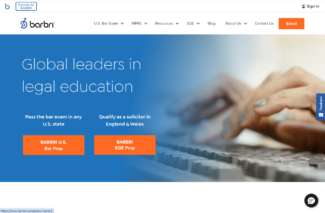The BARBRI Group companies meet the legal education, cyber skills education and specialized training needs of law students, attorneys, IT students and other professionals throughout their careers. The companies offer a comprehensive portfolio of learning solutions for higher education institutions and law- and finance-related businesses. At the core of The BARBRI Group Companies is BARBRI Bar Review, which has helped more than 1.3 million lawyers around the world pass a U.S. bar exam. The company also provides online J.D., post-J.D. and international programs for U.S. law schools, hands-on cyber skills training for IT and criminal justice programs, and specialized ongoing training and certifications in areas such as financial crime prevention, eDiscovery and cyber literacy. The BARBRI Group, founded in 1967, is a Leeds Equity Partners portfolio company headquartered in Dallas with offices throughout the United States and around the world.
- All you need to know
- AmeXio X-Hub
- AmeXio X-Hub & Nuxeo: A winning duo to transform your document management
- Apply to a vacancy
- Blogs
- Consulting
- Customer communication management (CCM)
- Customer experience management (CXM)
- Customer Success Stories
- Enterprise Content Management (ECM)
- Global Market Leader
- Home
- Industries
- Legal Notices
- Our locations
- Our news
- Our solutions
- Site map
- Structured content management (SCM)
- Terms and Conditions AmeXio Netherlands B.V.
- Unlocking the power of the Cloud
- We love Documentum
- Why join us?
- Working at AmeXio
